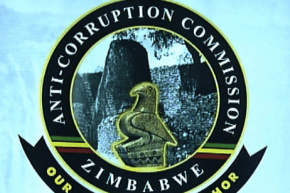
IN the aftermath of Transparency International (TI)’s Corruption Perceptions Index (CPI) report for 2020, we had the Zimbabwe Anti-Corruption Commission making another phantom report that at least 41 high-profile figures face imminent arrest over graft allegations.
We have been down this road before: Imminent arrests of the so-called bigwigs but as history has taught us, Zacc is all talk, catch and release and then, nothing.
Zimbabwe’s ranking of 157 out of 180 with a score of 24 over 100 in the TI’s CPI shows exactly why Zacc needs to talk less and act more. Corruption is beyond epidemic in this country and the so-called plans to fight it have amounted to elaborate lip-service, score-settling without anything tangible to show for it.
In fact, since 2012, the country has moved a grand four positions on the graft watchdog’s index, reflecting official reluctance to deal with the causes of corruption.
So, what is the latest ruse Zacc is selling this time? According to a report by the Zimbabwe Independent, more dockets are being worked on, with 180 expected to be completed this year. About 250 institutions in the public and private sectors, including the Mines and Mining Development ministry are all under the microscope; as are the allocation, occupation and sale of government houses and the misappropriation of US$23 million at the National Railways of Zimbabwe at a time the parastatal is struggling to stay afloat and owes workers unpaid salaries.
According to Zacc spokesperson, John Makamure, dockets against the 41 top-ranking government and private sector executives have already been handed to the National Prosecuting Authority (NPA), suggesting that it has already satisfied itself that it has enough evidence to obtain convictions against the officials.
So, why is the NPA not acting? The report suggests that releasing the names of the officials would jeopardise investigations. We do not buy that excuse, and if Zacc was unsure that it had solid cases against the officials, why hand the dockets over to the NPA?
In February last year, the head of NPA, Prosecutor-General (PG) Kumbirai Hodzi was on record saying that cartels had captured key government institutions including the police and Judiciary, making it difficult to tackle graft or bring culprits to book.
- Chamisa under fire over US$120K donation
- Mavhunga puts DeMbare into Chibuku quarterfinals
- Pension funds bet on Cabora Bassa oilfields
- Councils defy govt fire tender directive
Keep Reading
According to Transparency International, Zimbabwe loses US$1 billion every year to corruption, and so far authorities have yet to lay a glove on the perpetrators.
Hodzi’s admission about the growing sophistication of cartels, which he said were responsible for most of the high-level corruption, was more enlightening. The cartels were in all the key institutions: legal profession, Judiciary, the NPA, media and all other institutions that are mandated to fight corruption.
Zacc chairperson Justice Loice Matanda-Moyo also made similar remarks in December last year, that there was rampant corruption at the Zimbabwe Republic Police, the Judiciary and the NPA, the very organisations that are supposed to fight graft.
So, if the cartels have such a broad network and are that powerful, shouldn’t Zacc also up the ante? Name the corrupt officials and put the spotlight on them and their illegal activities. Maybe we can start the fight back against graft.











